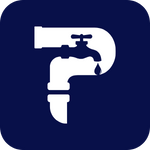The Emergence of Digital Plumbing Solutions: Revolutionizing Infrastructure Management In a time when technology is influencing every part of our lives, the plumbing sector is changing dramatically. The management and upkeep of infrastructure are being completely transformed by digital plumbing solutions. This piece explores the emergence of these cutting-edge solutions, their effects on infrastructure management, their benefits, the difficulties encountered during implementation, and the prospects for this industry. A variety of technologies are included in the idea of digital plumbing solutions, which are intended to improve the efficacy & efficiency of plumbing systems. These technologies, which range from sophisticated software that forecasts maintenance requirements to smart sensors that track water flow, are revolutionizing conventional plumbing procedures.
Key Takeaways
- Digital plumbing solutions are on the rise, revolutionizing infrastructure management.
- These solutions are changing the way infrastructure is managed, making it more efficient and cost-effective.
- Implementing digital plumbing solutions comes with numerous advantages, including improved monitoring and maintenance.
- However, there are challenges and obstacles to adopting these solutions, such as initial investment and integration with existing systems.
- Case studies show successful implementation of digital plumbing solutions, paving the way for the future of infrastructure management.
A key factor in this change has been the emergence of the Internet of Things (IoT), which makes it possible to collect and analyze data in real time. Effective infrastructure management is more important than ever as urbanization picks up speed and population increases. Conventional plumbing systems frequently find it difficult to meet these demands, which results in inefficiencies & higher expenses. The tools that digital plumbing solutions offer enable proactive management and maintenance, which eventually improves service quality and lowers operating expenses. By implementing automation and data-driven decision-making, digital plumbing solutions are radically changing the way infrastructure is managed.
Plumbing systems can now be remotely monitored thanks to the integration of IoT devices, enabling the quick identification of leaks or obstructions. The transition from reactive to proactive management reduces downtime & service interruptions while simultaneously improving system reliability. Infrastructure managers can also make well-informed decisions based on real-time data thanks to advanced analytics tools.
Predictive maintenance algorithms, for example, can forecast probable failures before they happen by analyzing historical data. This ability lowers the possibility of catastrophic failures that could interrupt services and result in high repair costs by enabling prompt interventions. There are several benefits to implementing digital plumbing solutions, which can greatly increase operational efficiency. Saving money is one of the most obvious advantages.
| Metrics | Data |
|---|---|
| Cost Savings | Up to 30% reduction in infrastructure costs |
| Efficiency | Improved operational efficiency by 25% |
| Reliability | 99.99% uptime for digital plumbing solutions |
| Scalability | Ability to scale infrastructure as needed |
Businesses can find inefficiencies in their plumbing systems and reduce water waste and utility costs by using smart sensors and analytics. Also, by resolving problems before they worsen, predictive maintenance can help prevent expensive emergency repairs. An additional significant benefit is increased client satisfaction. Service providers can guarantee a higher degree of service quality with real-time monitoring & quicker issue resolution times.
Consumers gain from less interruptions and a more dependable water supply, which is especially important in cities with high demand. Digital plumbing solutions also support sustainability initiatives. These technologies align with global initiatives to minimize environmental impact and conserve resources by optimizing water usage and reducing waste. Adopting digital plumbing solutions becomes both a strategic advantage & a moral requirement as businesses place a greater emphasis on sustainability. The use of digital plumbing solutions is not without its difficulties, despite the obvious advantages. The initial outlay needed for technology implementation is a major barrier.
Many organizations might be reluctant to spend money on new systems, particularly if they don't know how much they will cost.
Also, organizations frequently lack the necessary skills to manage emerging technologies. To use digital plumbing solutions efficiently, staff members might need training, which can be expensive and time-consuming.
Another common obstacle is resistance to change; employees used to traditional methods may be reluctant to adopt new technologies out of concern that their jobs will be replaced or that their roles will become more complex. Digital plumbing solutions have been successfully deployed by a number of organizations, demonstrating their potential to revolutionize infrastructure management. One prominent example is a large city that implemented smart water meters throughout its whole water system.
The city reduced water loss by more than 30% & promptly detected leaks by utilizing real-time data from these meters. This program enhanced the overall quality of services provided to residents while also saving money. An additional case study focuses on a sizable business complex that combined digital plumbing solutions with a comprehensive building management system (BMS). The facility management team was able to react quickly to any problems because the BMS made it possible to centrally monitor all plumbing systems.
Because of the better water quality & dependability, the building's maintenance expenses were significantly reduced, and tenant satisfaction rose. With the ongoing development of digital plumbing solutions, infrastructure management seems to have a promising future. Future technological developments should bring us even more advanced tools that use machine learning (ML) and artificial intelligence (AI) to improve predictive analytics. These developments will further simplify operations & enhance the quality of decision-making.
Also, as technologies are integrated into cities to make them smarter, digital plumbing solutions will be essential to building resilient urban environments. Effective monitoring and management of water resources will be crucial for tackling issues like population growth and climate change. Companies that make these technological investments will therefore be in a better position to meet demands in the future. There are numerous important players in the digital plumbing solutions sector who are spearheading innovation and advancement in this field. At the vanguard of this change are businesses that specialize in Internet of Things devices, like smart meters and sensors.
In order for businesses to fully utilize data, software providers that provide analytics platforms specifically designed for plumbing management are also essential. Prominent businesses that specialize in intelligent water management systems are those that offer complete solutions that combine hardware and software for optimum efficiency. Technology companies & traditional plumbing companies are increasingly forming partnerships as both industries see how important cooperation is to improving service delivery. For digital plumbing solutions to be implemented successfully, organizations need to consider a number of factors. The most important thing is to thoroughly evaluate current systems and pinpoint the precise areas where digital solutions can be most beneficial. This analysis will direct the selection of suitable technologies & assist in setting investment priorities.
Involving stakeholders at every stage of the procedure is also crucial. Employee buy-in and change resistance can be increased by involving them in conversations about new technologies. Providing sufficient training and assistance will also be essential to guaranteeing that employees are comfortable utilizing new systems. As technology develops, businesses should also continue to be adaptable and willing to change their approaches. Keeping up with new developments in the rapidly evolving field of digital plumbing solutions will help businesses stay competitive and adapt to new challenges.
In conclusion, digital plumbing solutions are transforming infrastructure management through increased productivity, lower expenses, and better service. Although implementing these technologies can be difficult, for organizations that are open to change, the advantages greatly exceed the drawbacks. It is evident that digital plumbing solutions will be crucial in creating sustainable urban environments in the future. If you're thinking about integrating digital plumbing solutions into your company or would like to know more about how they can change the way you manage your infrastructure, now is the time to take action. For a more effective tomorrow, embrace innovation now!
If you are interested in learning more about digital plumbing solutions, you may want to check out this article on plumbing analytics and reporting in Durham, North Carolina. This article discusses how data and analytics can be used to optimize plumbing operations and improve efficiency. You can read more about it here.
FAQs
What are digital plumbing solutions?
Digital plumbing solutions refer to the technology and tools used to connect, integrate, and manage data and systems within a digital environment. This can include data integration, data management, and data connectivity solutions.
What are the benefits of using digital plumbing solutions?
Some of the benefits of using digital plumbing solutions include improved data accuracy, increased efficiency in data management, enhanced data security, and the ability to integrate and connect various systems and applications.
What are some common digital plumbing solutions?
Common digital plumbing solutions include data integration platforms, data management systems, API management tools, data connectivity solutions, and data transformation technologies.
How do digital plumbing solutions impact businesses?
Digital plumbing solutions can have a significant impact on businesses by enabling them to streamline their data management processes, improve decision-making through better access to data, and enhance their overall digital infrastructure.
What industries can benefit from digital plumbing solutions?
A wide range of industries can benefit from digital plumbing solutions, including finance, healthcare, retail, manufacturing, and technology. Any industry that relies on data and digital systems can benefit from these solutions.






